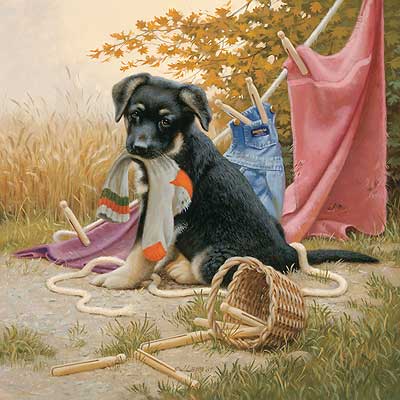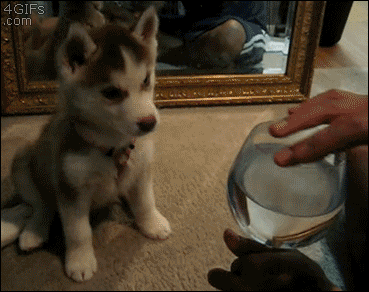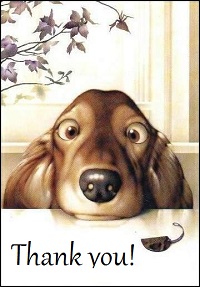Chewing and Play Biting
Chewing and play biting, how to control it and what do do about it.
STEP 1
Understand the causes – knowing WHY will help you decide WHAT to do.
- If your puppy has an aggressive temperament, chewing and play biting will be a favorite activity.
- Retrieving dogs are very oral, and often do not feel comfortable unless they have something in their mouths.
- Some dog breeds, such as terriers, were bred to catch and kill small game. They have an inbred instinct to “kill” their toys, and whatever they perceive to be “toys.”
- Nervous, anxious puppies sometimes engage in destructive chewing because it helps to relieve anxiety. This is very similar to the nervous habit of chewing on fingernails. When I was in grade school, I regularly chewed on my pencils when taking tests that I didn’t feel prepared for – some puppy chewing is triggered the same way.
- Puppies that are taken from their mother and litter-mates at the age of 5 weeks or younger have missed a critical developmental period. If this is the case, you will have to work longer and harder on the biting problem.
STEP 2
Take appropriate action – do not sit back and expect that your puppy will suddenly “grow out of it.”
If your puppy is bored, teething or full of nervous energy:
- Provide good chew toys, but not too many at a time, and alternate them.
- Wear your puppy out with lots of play and exercise.
- Find a play group with friendly dogs for your puppy to play with.
- Spend some time teaching and reinforcing “Drop It” and “No Bite”
If your puppy gets wired, and goes berserk biting and chewing:
- Avoid wild games and tug-of-war.
- Use correction followed by a short obedience session.
- Be careful that you are not inadvertently praising your puppy for this behavior.
- Insist that your puppy stop when YOU say so.
- Take your puppy for a long walk.
- Find a play group with friendly dogs for your puppy to play with.
- Give your puppy some “time out” in the crate or other secure area.
- You may need to use some stronger corrections, even a good shake by the scruff of the neck. (Do not use this correction with an aggressive puppy, it may escalate the problem.)
If your puppy is regularly picking out specific items to chew on:
- Treat the object (and / or similar ones) with a bitter tasting substance.
- Spend some time teaching and reinforcing “Drop It”
- Devise a booby trap. For example, a cascade of plastic bottles partly filled with pennies (for a noisy landing) and tied together with string might suddenly fall on a puppy busily engaged chewing on the chair leg.
- Use a squirt bottle or shake can and keep it handy.
- Do not leave the puppy alone or unattended with access to things he likes to chew up. This will only teach him that chewing is fun and OK when you aren’t around.
- Do give the puppy plenty of access to things he likes to chew up when you ARE around and PAYING ATTENTION. This will give you plenty of opportunities to teach your puppy what IS and what IS NOT acceptable chewing material.
If your puppy is chewing on you to get attention:
- Try to spend some quality time every day with your puppy.
- Teach your puppy to “fetch,” play ball, or other suitable games.
- Take time to work on some obedience commands with your puppy.
- Find a play group with friendly dogs for your puppy to play with.
- Use distractions, or take your puppy for a long walk.
If your puppy chews on you to stop you from doing something:
- Do not allow this behavior to work for your puppy.
- Be firm and consistent with your corrections.
- Work on building a relationship based on trust and respect.
Important Points:
- Remember, chewing is normal puppy behavior.
- Dogs play bite when they play with each other. It is up to you to teach your puppy that humans do not play the same way as dogs.
- Do not OVER correct chewing behavior if it is caused by anxiety or nervous tension. This will make your puppy even more nervous, and the problem could escalate.
- Do not UNDER correct play biting and mouthing as a form of dominance. Assert yourself now, or you will have bigger problems later.
- Provide plenty of fun alternatives, praise your puppy when he uses them.
- Make sure your puppy gets plenty of physical exercise. A tired puppy is a sleeping puppy. And a sleeping puppy is not chewing or biting.
Written by: Shirley Gibson
Note:
You are welcome to share this post but ONLY IF you give credit and a link back to Teach Your Dog To Behave or shirleytwofeathers.com.
- Dog Training School Pics by shirleytwofeathers - 1 Comment
- Some Cute Dog Quotes by shirleytwofeathers - No Comment
- Training Do’s and Don’ts by shirleytwofeathers - No Comment
- Holiday Toxins and Dangers by shirleytwofeathers - No Comment
- Four Good Reasons To Train Your Dog by shirleytwofeathers - No Comment
John kleist: Dog Training School Pics





Leave a Reply